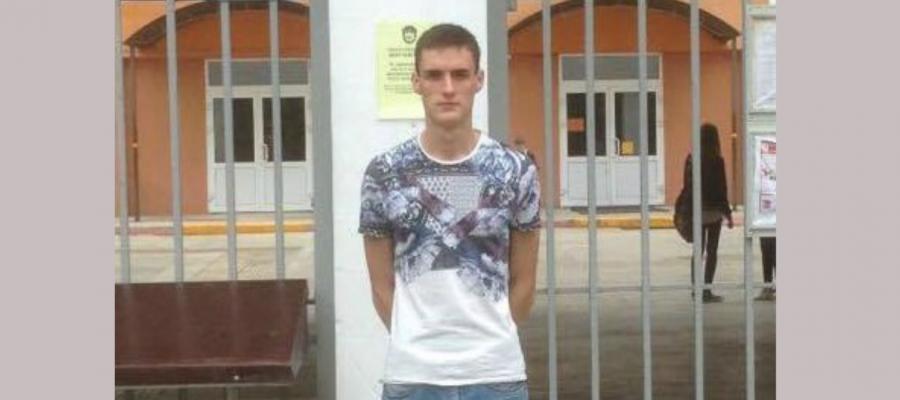
The European Court of Human Rights posed questions to Russian authorities on whether Georgiy Sveshnikov from Sochi was subjected to police torture two years ago and whether the investigation of his complaint at the national level was effective.
As we have previously reported, in May 2017, Georgiy Sveshnikov, a pupil of 11th form of Sochi school No.18, applied to the Krasnodar branch of the Committee Against Torture. He reported that on 28 April of the same year two criminal investigation officers collected him from school saying they needed to question him in a capacity of a witness and delivered him to the police station of Khosty settlement. There, according to Sveshnikov, these police officers were hitting the back of his head, his back and abdomen, forcing him to confess of theft.
– I did not sign anything at the Khostinsky Police Station, and the same officers brought me to the police station of Loo settlement. There, one of the police superiors told me: “If you don’t confess – I will stick a truncheon in your ass!”, – Georgiy Sveshnikov recalls.
According to Sveshnikov, he was beaten up again, his face, head, back and abdomen were hit. At some moment Georgiy had an epileptic seizure and he lost consciousness. Medics, who arrived after call from the police officers, rendered Sveshnikov first aid.
According to Sveshnikov, after they left, he agreed to write to the police officers’ dictation a “confession”, stating that he was involved in a theft, keeping a lookout, and subsequently he confirmed this testimony with the investigator.
Later on, the criminal case with regard to Sveshnikov was dismissed due to reconciliation of the parties – he accepted his guilt, apologized to the victim and compensated the damage fully.
Georgiy was released from the police department with travel restrictions, and on the next day he applied to the Sochi City Hospital No.4, where he was diagnosed with “contusions of face and soft tissues of lumbar region”.
On 30 April, Georgiy lost consciousness again, and he was hospitalized to the neurological department of the City Hospital, where he was treated up to the 5th of May. After release from hospital, Sveshnikov applied with a crime report to the Investigative Committee, as well as to human rights defenders for legal assistance.
During pre-investigative check based on Sveshnikov’s police torture complaint, the investigators issued three rulings refusing to initiate criminal proceedings, two of which were subsequently quashed as premature and illegal. However, the last “refusal” was declared legal by the Prosecutor’s Office, and then by the courts of two instances.
In September 2018, lawyers with the Committee Against Torture submitted an application to the European Court of Human Rights on behalf of Georgiy Sveshnikov. According to human rights defenders, representing Sveshnikov’s interests, the article of the European Convention, prohibiting torture and guaranteeing the effective investigation, was breached with his regard.
In the end of April of this year the European Court of Human Rights’ website published information that this application was communicated: the Strasbourg judges posed Russian authorities questions on whether Sveshnikov was subjected to torture and whether the investigation of this application at the national level was effective.
“We see that the “Sveshnikov case” was communicated in the group of cases with similar charges: all the applicants in the period from 2011 to 2017 were suspected of committing a crime and with regard to this, as they claim, the police officers applied violence against them, forcing them to confess. For different reasons all the applications for initiating criminal proceedings were dismissed. It is seen from the description of the facts that geographical coverage of these cases is quite wide – from Krasnoyarsk to Sochi, as for everything else, the cases are absolutely similar, which allows us to talk about the system-level problem of applying torture during apprehension and arrest. The European Committee for Prevention of Torture paid attention to this problem in its recently published report”, – head of the department of international legal protection with the Committee Against Torture Olga Sadovskaya.